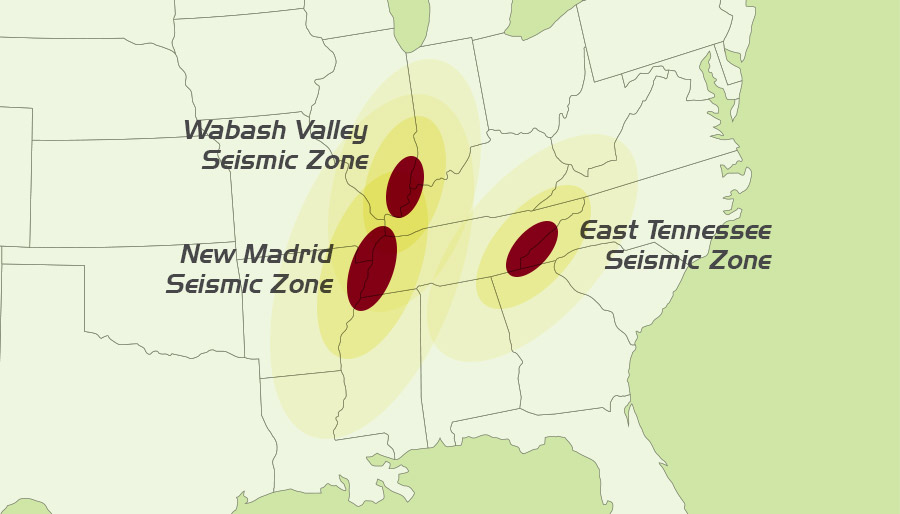Tennessee Earthquake: What You Need to Know Today
On this day, as we reflect upon the seismic activities across the globe, the earthquake in Tennessee has captured the attention of many. Earthquakes are a natural disaster that can strike without warning, and understanding their implications is critical not only for residents in earthquake-prone areas but also for businesses and HR professionals who need to consider disaster preparedness in their operational plans.
Seismic Activity in Tennessee
Historically, Tennessee is located within a seismically active region, primarily influenced by the New Madrid Seismic Zone. According to the Central United States Earthquake Consortium (CUSEC), while the risk may not seem pronounced to those who reside in urban areas, the potential for significant earthquakes remains a reality for the state. Recent tremors have served as a reminder of the necessity for preparedness.
Understanding Earthquakes: What Causes Them?
Earthquakes occur due to tectonic plate movements, which may cause stress to accumulate in the Earth’s crust. When the stress exceeds the rocks’ strength, they suddenly break and release energy, causing seismic waves that lead to ground shaking. Several factors contribute to the frequency and intensity of earthquakes in a region, including geological structure and historical seismicity.
Impact of Earthquakes on Businesses
As HR professionals and business leaders, understanding the ramifications of an earthquake can significantly influence your company’s resilience. An earthquake can lead to the following:
1. **Physical Damage**: Buildings may suffer major structural damage, leading to unexpected repairs and employee relocations.
2. **Operational Disruption**: Businesses may face interruptions due to damaged facilities or employees’ inability to reach the workplace safely.
3. **Employee Safety**: Protecting and ensuring the safety of your workforce is paramount.
4. **Business Continuity**: Developing a business continuity plan is essential to maintain operations during and after a seismic event.
Preparedness: What Steps Should Businesses Take?
Given the unpredictable nature of earthquakes, businesses in Tennessee and other states should consider preventive measures. Here are comprehensive guidelines to enhance earthquake preparedness:
1. Conduct a Risk Assessment
Businesses should evaluate their location and building structures for potential seismic risks. Consulting with seismic experts can provide invaluable insights into your specific vulnerabilities.
2. Create an Emergency Response Plan
Every organization needs a well-defined emergency response plan that addresses earthquake preparedness. Your plan should include evacuation routes, communication strategies, and employee safety procedures.
3. Educate Employees
Training employees on earthquake safety practices can save lives. Regular drills and educational resources help employees know how to react during an earthquake, whether they are at home or in the workplace.
4. Invest in Infrastructure
Taking preventive measures to reinforce buildings against seismic activities is a wise investment. Structural improvements and safety measures can mitigate damage.
5. Establish Partnerships
Partnering with local emergency services and response teams can enhance your preparedness. Joint training exercises can ensure a well-coordinated response during an actual event.
Utilizing AI and Automation in Earthquake Preparedness
In today’s digital age, the implementation of AI consulting and automated workflows can play a critical role in enhancing disaster preparedness. Here’s how:
AI-Driven Risk Analysis
AI can analyze historical data to predict the likelihood of earthquakes in specific regions, allowing businesses to react proactively.
Automated Response Systems
Organizations can implement automated alerts and notifications to ensure that employees receive timely updates during an earthquake.
Streamlining Workflow for Recovery
Using tools like n8n, organizations can automate business processes to facilitate recovery efforts post-earthquake. Automating communication and workflow can support seamless transitions back to normal operations.
Conclusion: Stay Informed and Prepared
The Tennessee earthquake serves as an urgent reminder of our responsibility to understand and prepare for such natural disasters. By prioritizing safety, investing in infrastructure, and leveraging technology, we can enhance our resilience against earthquakes and safeguard our employees and businesses. Explore resources from CUSEC and incorporate proactive measures into your business strategy today.








